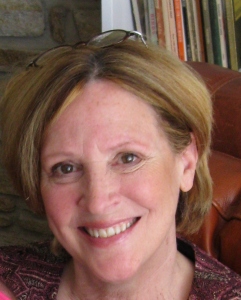I knew my days were numbered as soon as the new org chart came out. It was complicated and confusing, with squiggles and two-sided arrows. It was like a corporate Escher print, and I couldn’t — for the life of me — figure out where I belonged anymore in the company that had been my employer for six years.
“We’re letting you go.”
I love this phrase, don’t you? It made me seem like some sad, caged bird, who was now free to explore the world, thanks to the kindness of the Board of Directors. At least that’s how I tried to hear it.
My laptop was gone by the time my boss and I walked back to my desk. According to company policy, he was supposed to watch me pack up and escort me from the building.
“Really, you don’t have to stand here,” I said, trying to get him off the hook. I felt sorry for him having to bounce me out. “I’ll come by your office when I’m done,” I told him. Then as he walked up the hall, I reached for an economy 12-pack of Post-it Notes and threw it in my purse. It’s been five years since I was fired, and I’m mentioning it here since I’m sure the Statute of Limitations has kicked in. Apparently my new life hasn’t called for Post-it Notes the way I thought it would. I still have 11¾ packs.
By 7:45 I’d signed a letter giving me a generous severance and making me promise not to sue them for firing a person so old she had actually watched the Moon Landing on live TV and remembered Thin Elvis.
By 7:55 my boss and I were standing awkwardly in the parking lot, as he sweetly lifted cartons into my car: all of my framed photos, potted English ivy, my extra pair of winter boots in case it snowed while I was at work, and a pencil holder my son made in 3rd grade.
He said, “You’ll be just fine.” He looked sad. I thought about confessing about the Post-it Notes.
By noon I was almost buoyant. “It was for the best!” “Thank God!” “No more pressure!” “A blessing in disguise!” All me.
I did the usual things a person does after getting fired: I called everyone else who’d also been fired so we could bad mouth the company that didn’t realize how phenomenal we were. I considered careers that seemed like they’d be much more fun than the one I’d been tethered to —Personal chef? Yoga instructor? Restaurant critic? Then I drank a lot of wine and took a nap.
When it was time to get out there and find my next job, I sent out cover letters only to find the silence they received unsettling. So I did what I do in times of uncertainty. I took to the Internet to find 16 diametrically opposed opinions about what I should do next. I found some job counseling companies, loaded with experts who were dying to help.
I gave my credit card number to one of the companies with the words “PLUS” or “PRO” in its title, and three days later, my new résumé was delivered. Was I was concerned I didn’t recognize myself on paper anymore? Yes and no. It was unsettling to read all the things I had expertise in that I really didn’t. But I still thought as long as I could get an interview, I’d shine. Thanks to the fiction team now selling my wares, it would take the CIA to uncover how old I was until I arrived at their doorstep. Then my charm would take over.
I landed three interviews within the next week.
It takes a lot of time to get sparkling for an interview when you’re 61 — this much I learned. You have to project a certain maturity and know-how without letting them find out you’re wearing Easy Spirit pumps. You have to invest in Spanx. You can’t eat a poppy seed bagel for breakfast. It’s a long list.
For my first interview in the marketing department of a local hospital, I had to enter by walking right past the cubicles of the people I’d be working with. As I opened the door, everyone in the room popped their heads up, like those adorable little prairie dogs you see at the zoo. Immediately I watched their shoulders all slump in one communal exhale (sort of a silent “Oh, pulease”).
No, really, I wanted to say, I’m lots of fun! I know who Taylor Swift is! You’ll like me! I smiled and entered their boss’s office where his 15-minute interview was just over the line of perfunctory. It wasn’t worth the ten minutes it took me to get myself wedged into my Spanx.
The next two interviews weren’t any better. At the second one, the person in charge was — just a guess here — nineteen. At the third, I was interviewed by a panel of women my age, which might have held more promise if they hadn’t been Nuns at a women’s Catholic college and the only thing our lives had in common was that we were all wearing black.
I got three responses all in polite, templated email. All three ended with, “Best of luck in your job search.”
I sat at my computer, reading, and realized something I had glossed over before.
The part about being 61.
